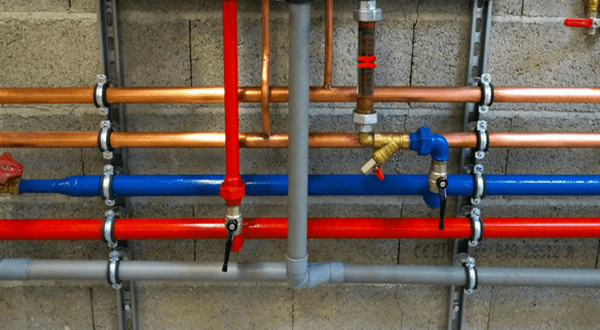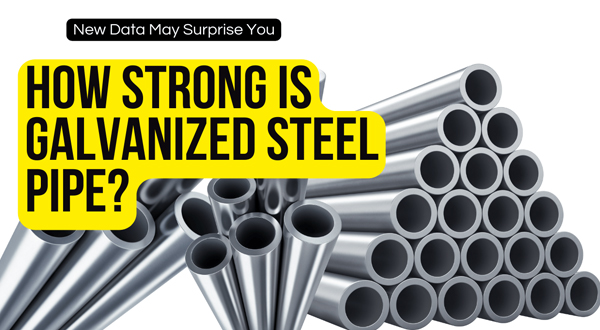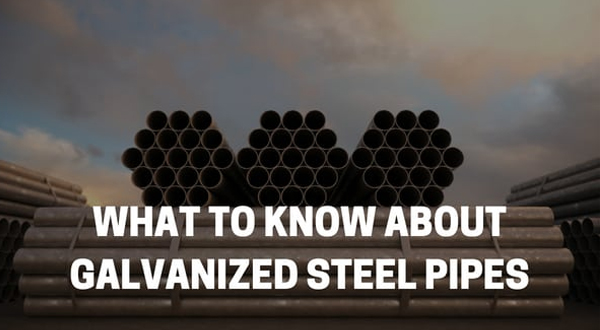Get acquainted with the essential details of Sinoeast galvanized steel pipes in this informative article. Galvanized steel pipes coating with a protective layer of zinc, making them highly resistant to corrosion and rust. Discover their various applications, benefits, and factors affecting their lifespan. Learn how Sinoeast galvanized steel pipes are a reliable and durable solution for your construction, infrastructure, and industrial projects. Read on to gain valuable insights into the world of galvanized steel pipes.
Introduction to Galvanized Steel Pipes
Galvanized steel pipes are a popular and versatile choice in various industries, known for their durability, corrosion resistance, and cost-effectiveness. The carbon steel pipes coating with a protective layer of zinc through a process called galvanization. This zinc coating acts as a barrier, preventing the underlying steel from rust and corrosion, even in harsh environments.
The galvanization process involves immersing the steel pipes in a molten zinc bath. Ensuring a uniform and robust coating on both the inside and outside surfaces. This protective layer not only extends the lifespan of the pipes but also enhances their performance in challenging conditions.
Applications of Sinoeast Galvanized Steel Pipes
Galvanized steel pipes find applications in a wide range of industries. In the construction sector, they are commonly used for water supply lines, plumbing, and structural supports. Their ability to resist rust and corrosion makes them ideal for outdoor applications such as fencing, guardrails, and handrails.
Moreover, galvanized steel pipes are widely utilized in agriculture for irrigation systems, greenhouse structures, and animal enclosures. In the electrical industry, they serve as conduits for electrical wiring due to their non-combustible and non-toxic properties.
Advantages of Galvanized Steel Pipes
One of the significant advantages of galvanized steel pipes is their exceptional longevity. The zinc coating provides a protective barrier that extends the life of the pipes, making them a cost-effective choice for various projects. Additionally, galvanized steel pipes require minimal maintenance, reducing operational costs over their service life.
The corrosion resistance of galvanized steel pipes ensures consistent water flow and purity in water supply systems. Thus making them suitable for potable water applications. Their robustness and durability make them reliable for underground installations and areas prone to adverse weather conditions.
Environmental Sustainability
Galvanized steel pipes are environmentally friendly due to their recyclability. At the end of their service life, the pipes can be recycled and used in various other applications. Because contributes to a more sustainable and eco-friendly approach to construction and infrastructure projects. Regular inspection, addressing any damages promptly, and periodic cleaning are essential for extending the life of galvanized steel pipes.

Factors Affecting Lifespan
The lifespan of galvanized steel pipes is influenced by several key factors. Understanding these factors is crucial for ensuring the pipes’ optimal performance and longevity.
1. Environmental Conditions:
The environment in which the galvanized steel pipes are installed plays a significant role in their lifespan. Because exposure to harsh weather conditions, extreme temperatures, and high humidity levels can accelerate the corrosion process. In coastal areas with salty air, the zinc coating may erode more quickly, affecting the pipes’ durability.
2. Installation Techniques:
Proper installation is essential for maximizing the lifespan of galvanized steel pipes. Inadequate installation practices, such as improper fastening or inadequate support, can lead to stress on the pipes, causing premature wear and tear. Following industry best practices during installation ensures the pipes’ stability and performance over time.
3. Thickness of Zinc Coating:
The thickness of the zinc coating on galvanized steel pipes directly affects their corrosion resistance and lifespan. Thicker coatings generally offer better protection against rust and can extend the pipes’ service life. Thus it is essential to choose pipes with an appropriate zinc coating thickness based on the specific application and environmental conditions.
4. Water Flow and Velocity:
The rate of water flow and velocity through the pipes can impact their lifespan. Additionally, high-velocity water flow can lead to increased wear on the zinc coating, potentially reducing its protective properties. Moreover properly sizing and designing the plumbing or irrigation system can help maintain an optimal water flow rate and reduce the risk of premature corrosion etc.

Maintenance and Care
1. Regular Inspection:
Periodically inspect the galvanized steel pipes for any signs of corrosion, rust, or damage. Look for discoloration, flaking, or spots on the zinc coating. Early detection of potential issues allows for timely repairs and prevents further deterioration.
2. Cleaning:
Keep the pipes clean and free from debris to prevent buildup that could trap moisture and accelerate corrosion. Thus use a soft brush or cloth to remove dirt and grime from the surfaces.
3. Protective Coatings:
Applying additional protective coatings to the zinc layer can enhance the pipes’ corrosion resistance. There are various types of coatings available, such as epoxy or polyurethane, that provide an extra layer of protection.
Conclusion
Sinoeast galvanized steel pipes offer an excellent solution for your construction and industrial needs. Their unique properties, wide applications, and longevity make them a preferred choice. Additionally, by understanding their advantages and proper maintenance, you can ensure reliable and long-lasting performance for your projects. Embrace the durability and versatility of Sinoeast galvanized steel pipes today.

